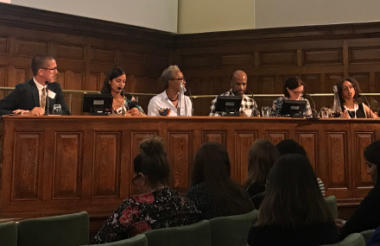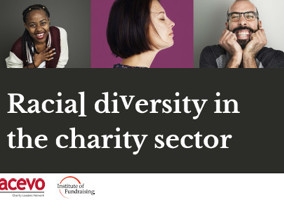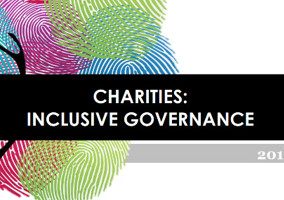Charities do not reflect the people they seek to serve and if leaders do not start having “uncomfortable” conversations about race they will risk losing out on talent and donations in the future, warned sector experts yesterday.
Experts were taking part in a panel discussion titled Challenging racial inequality and prejudice in charity leadership at yesterday’s Charity People & Culture Conference, organised by Civil Society Media.
Opening the discussion, Rob Berkley, a trustee of the Baring Foundation, said the sector faced a “massive challenge”. He said it should be responding to the digital revolution, ageing population, climate change and other challenges and opportunities facing the sector, but that some black, Asian and other minority ethnic people did not look to the charity sector, because it does not reflect them.
“They look at us and we don’t even look like them,” he said, and they don’t “feel as if this is the hub of that social change," and "that is a problem not for them, but for us".
Uncomfortable discussions
The panel said that it was important to have awkward conversations.
Tessy Ojo, chief executive of the Diana Award, said there is still “huge discomfort in how we talk about race” and that it makes people “nervous”.
Earlier this year Acevo launched eight principles designed to help leaders face up to the problem, and its chief executive, Vicky Browing, said that she has found some of these conversations “difficult” but “that is why we must do it”.
Sufina Ahmad, chair of the Institute of Fundraising’s expert panel on equality, diversity and inclusion, added that it was important that there were “safe places” for honest discussion to take place, “where people can speak for themselves about their own experiences”.
‘It starts with leadership’
Browning said that change starts with leaders understanding that there is a problem.
“One of the most crucial things is that we as chief executives have to acknowledge the problem,” and that they then have to “commit to do something about it”.
Thomas Lawson, chief executive of Leap Confronting Conflict, said that white leaders are often quick to “doubt” other people’s experience and that they need to accept the “reality that we are probably behaving 'racistly'”.
He said that as a white, middle class man, he has had an “unfair advantage” and him and others like him “will have to give up power”.
Lawson said there was also a problem with white people’s “fragility” but that “if we freak out everything freezes” and then “literally nothing can happen”.
‘If you treasure it you measure it’
Ojo called on the sector to put targets in place.
She said that the sector is good at measuring its outputs and is “working really hard to understand its impact” but these tools should be applied to measuring its progress on race inequalities.
“If it is not on the agenda it is not being measured and if it is not being measured nothing is changing,” she said.
“If you treasure it you measure it.”
Educating white people
Wanda Wyporska, executive director of the Equality Trust, said that she recently visited a youth project where the young people were mostly black but the youth workers were exclusively white.
She said that the youth workers asked embarrassing questions of the young people which had the effect of “making us explain ourselves”.
Wyporska said this also happened in policy development where people were “not asking the right questions” and end up “going down the wrong burrows”.
Lawson said it is “incredibly easy for us to educate ourselves” by reading and looking stuff up on the internet, and that white people need to “take some responsibility”.
According to Ojo having white allies can be incredibly valuable.
She defined an ally as “someone curious enough to take an interest” and said she welcomed questioning and listening because “when you find out what that person needs you can support them”.
Action
Wyporska said it often feels like the sector is “having the same questions all the time,” and said: “I want to see some action.”
Ahmad said that the IoF panel had deliberately been given a two-year time limit to encourage progress to be made and so that the next generation of people “don’t have to say these things”.
Lawson said that since Leap’s board became more diverse, by including BAME people and those with lived experience, the level of debate had improved making it “one of the most rewarding boards that I have ever served”.
Wyporska also said that she recently attended an event at the Times where they were looking for ways to create a “more diverse readership” but that there was no discussion about creating a more diverse newspaper.
She said it was the “last chance for print” and that people would just create their own outlets if they were not represented in the mainstream.
The same, she said, applied to charities.
“If you don’t represent us then you won’t get our money and you won’t get our talent,” she said.
|
Related articles











